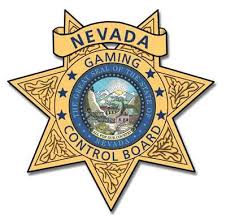
Former professional basketball player Charles Oakley pleaded no contest to a misdemeanor charge stemming from his arrest for cheating at the Cosmopolitan of Las Vegas. He will not receive any jail time.
Oakley played for five teams in his NBA career, but he was best known for his decade with the New York Knicks. He specialized in defense and rebounding and was one of the toughest players in the league; his strength was his calling card and he was not afraid to mix it up with opponents. In the 1993-1994 season, he set a record for 107 starts in a single season, including playoffs.
The 54-year old was caught on security video cheating in three hands at the Cosmopolitan in July. TMZ first reported the details of the incidents. The hands took place at an Ultimate Texas Hold’em table. Not to be confused with a regular poker game, Ultimate Texas Hold’em is a poker-based casino game. To start, the player must place an ante and blind bet of equal size. The player and dealer are then each dealt two hole cards. If the player likes his cards, he can make a “play” bet of three or four times the ante. If he does so, that’s it for the rest of the hand. If he checks, he can then make a smaller bet on the flop. The turn and river are dealt together, after which the player can then make an even smaller bet if he checked twice previously. Without getting into the nitty-gritty of all the rules, odds, which bets pay out in which situations, the player wins if he has a better five-card hand than the dealer.
According to TMZ, Oakley allegedly pulled back a $100 chip after realizing he was going to lose a hand, clearly something that is not allowed. In the same session, Oakley twice added chips to his bet when he saw he was going to win. On those two hands, he upped his payout by $125.
Oakley was arrested by Nevada Gaming Control Board Enforcement agents at the casino and booked into the Clark County Detention Center. He was charged with “adding or reducing his wager” when the outcome of the game was already determined, which is a Class B felony in Nevada. Though it was only his first offense and for a relatively small amount of money, Oakley still would have faced one to six years in prison and up to a $10,000 fine had he been convicted.
Fortunately for Oakley, he was able to plea it down to a misdemeanor disorderly conduct charge and avoid any time behind bars.
Oakley “….appreciates the professionalism of the district attorney and the Cosmopolitan in resolving this event,” said Oakley’s attorneys David Chesnoff and Richard Schonfeld.























